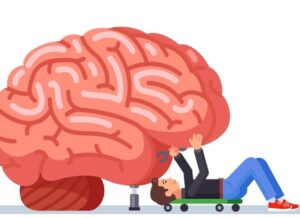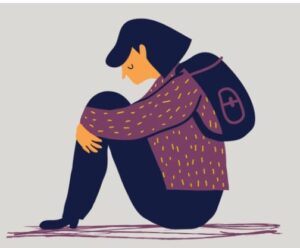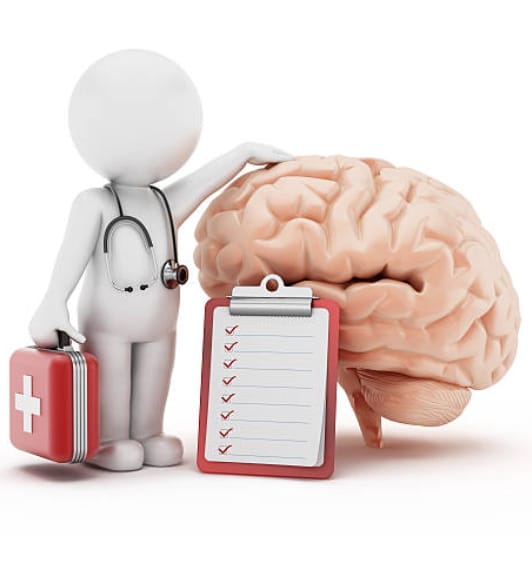Two Ghanaian Catholic Priests of the Divine Word Missionaries (SVD), Fr. Emmanuel Kwame Makayie, a Guidance and Counselling expert and Fr. Andrew Amanor, a Clinical Psychologist have expressed their views on the recent disturbing happenings in Schools in Ghana especially what they termed as “Truancy and Bullying among Senior High School (SHS) students.
In a joint write-up shared with newswatchgh.com, the two SVD Priests said “Indeed, students’ misbehavior has become a significant concern for parents and authorities of first and second-cycle institutions, and as such there is a need for a concerted effort to deal with the menace.”
Below is the write-up
We write in response to a disturbing phenomenon in our schools that has caught the attention of stakeholders of education and the general public – “Truancy and Bullying among Senior High School (SHS) students in Ghana.”
On June 9, 2022, the Director-General of Education issued a directive entitled ADDRESSING TRUANCY AMONG FINAL YEAR STUDENTS IN JUNIOR AND SENIOR HIGH SCHOOLS. The letter indicated that the Ghana Education Service (GES), was aware of students’ truant behaviour, their engagement in undesirable behaviors, and blatant disregard for school rules and regulations.
The letter stated, “Management of GES therefore, urges school authorities to report any criminal acts of students to the Ghana Police Service (GPS) for investigation and subsequent prosecution.” It further indicated that truant students might be under police escort during the examination period. One would have thought this directive by the Director-General of Education was going to be of interest to many well-meaning Ghanaians, but unfortunately, not much attention was given to it.
The Director-General’s letter seemed to be suggesting that the management of GES and the major stakeholders had exhausted all possible interventions and finally, resorted to criminalizing the deviant behaviors of students.

In response to the Director-General’s directives, we woke up on July 26, 2023, to read from the front page of the Daily Graphic, “A-G to prosecute Adisadel student.” This is in connection to a case in which a student of Adisadel College is seen bullying a fellow student in a disturbing viral video. The Daily Graphic reported that the police, upon the advice of the office of the Attorney-General, have initiated an investigation for possible prosecution. This approach by the A-G seems to tackle the current case from a criminal perspective, although the current data on this issue suggests that it is no doubt a behavioral problem that needs a developmental approach in terms of guidance services.
Indeed, students’ misbehaviour has become a significant concern for parents and authorities of first and second-cycle institutions, and as such there is a need for a concerted effort to deal with the menace.
Research
Our knowledge and understanding of increasing students social, emotional and mental health challenges, including bullying, indicate that several factors are associated with students’ behavioral problems. There have been several scientific studies concerning students’ behavioral problems and the results are compelling and revealing.
Factors such as adolescents’ lack of parental supervision, students from dysfunctional families (divorces and substance abuse), peer influence, and poverty have been cited as the primary predictors of bullying and other behavioral problems among Junior and Senior High School students. Seidu and colleagues in 2019 for instance found that students in their final year were more likely to be involved in behavioral problems than those in junior classes.

Behavioral problems like truancy and bullying have been linked to numerous outcomes, including tobacco use, alcohol and drugs, delinquency and crime, poor academic performance, and school expulsion. What research reveals is that behavioral problems and substance use are associated. What we are witnessing in our schools has their fundamental possible causal factors.
Several researchers have underscored the need for stakeholders to intervene through mental health approach to actively reduce mental health challenges among school adolescents in our schools. In that case, truancy, bullying, and other student behavioral problems should be seen as the mental health needs of children and adolescents.
In many countries worldwide, these problems in the education sector have been assigned priority status within the global child health plan. Evidence from research shows that school-based universal mental health promotion program that aimed at promoting social and emotional learning and resilience to prevent social, emotional, and behavioral problems in children and adolescents indicated increase in social and emotional competence and prosocial behavior, and a decrease in mental health issues in terms of externalizing and internalizing problems.
GES Approach
But what guidance interventions have been given by the GES and the school authorities to address the phenomenon in our schools? The concern of the GES is valid but the approach and actions taken need to be re-examined and revised. The circular from the Director-General of Education and subsequent actions taken by the office of the Attorney-General and the school authorities in the case of Adisadel College have grave consequences for the future of the students involve and indeed all young people in school.
Standard Core Practices
The WHO recommends that schools function as one of the primary mental health support systems for students, enabling the planning and implementation of comprehensive guidance and council programs and mental health actions that encompass promotion, prevention, intervention, and rehabilitation.
Such an intervention will foster the emotional and social well-being of these students instead of treating them as criminal young people. These can only be achieved through a collaborative effort of school counselors, students, families, school staff, community, and stakeholders in programs aimed at enhancing mental health and well-being. When this is achieved, it will foster social and emotional competencies, resiliency skills, prevention, and, addressing students at risk.
Guidance and Counseling Unit of GES
This article intends to focus on one of the GES structures that seems to have been undermined and underutilized in our educational system – the Guidance and Council Unit. GES has structures capable of effectively handling these crises in our schools without resorting to criminalizing the problem. Indeed, one cannot deny the need to criminalize isolated cases.
The present situation, at best, can be described as a crisis that is common in our schools that needs intervention. GES over the years has taken some steps in addressing the problem but much needs to be done to realize any meaningful impact. A letter with REF. No. GES/DG/040/9A dated November 4, 1976, entitled ESTABLISHMENT OF GUIDANCE PROGRAMME IN SECOND CYCLE INSTITUTION directed that every second cycle institution should have a Guidance Coordinator.

All regional and district offices are supposed to have Guidance and Counseling units with coordinators to coordinate all guidance programs in the regions, districts, and schools. The goal of high school counselors is to develop a comprehensive school counseling program that focuses on academic, career, and social-emotional development. The 1979 policy was based on the average ratio of 500 student population per Guidance Coordinator.
Guidance and Counseling Challenges
Today, school enrollment has increased drastically in second-cycle institutions with many schools having over 2000 students to be handled by a Guidance Coordinator. Yet, these Guidance Coordinators still handle classroom lessons, rendering them incapable of allocating ample time for any comprehensive guidance programmes in high schools. Certainly, we cannot expect Guidance Coordinators to manage these huge numbers while still attached to classroom work. This policy needs a review to detach all School Guidance Coordinators from classroom work to make them functional and efficient in organising comprehensive guidance programs in the schools.
Moreover, most Guidance Coordinators lack the offices, logistics, and facilities needed to organize meaningful guidance programs. As a matter of urgency, Guidance Coordinators should be detached from teaching and assigned to guidance and counseling work with offices and needed facilities to function fully as Guidance Coordinators.
Detaching them from classroom teaching will help them organize, design, and administer tried and tested mental health intervention programs that address behavioral issues, at-risk students, and most importantly, the socio-emotional well-being of students and staff instead of solely resorting to criminalization and punitive measures. The focus has always been on students, but teachers too need support and teachers must be empowered and equipped with evidence-based classroom management skills that promote teaching and learning.
The behavioural problems confronting our educational system are not unique but everyday mental health challenges that every educational system worldwide faces. However, the difference lies in the importance every individual nation attaches to mental health promotion in their schools. The GES should provide immediate and urgent attention to school mental health programs due to the mental health difficulties that adversely impact young people’s development in our schools.
Measures Needed
In response to the current directive proposed by GES, this article suggests that the authorities assign guidance counselors to provide immediate guidance assistance to the students involved for the good of their future and the safety of society. All other students identified with similar behaviors nationwide should be assigned school counselors to undergo frequent counseling. This is to give every necessary support to the students and their parents. This measure will help resolve students’ socio-emotional problems to help them prepare adequately for their final examinations and future careers. Waiting for another expulsion and police escort during the examination period next “examination year” will do no good to these students. It will only compound their problems, leading to future repercussions for the nation regarding increased crime and social problems.
Subsequently, the institutions mandated to train Guidance Coordinators should be resourced to develop a standard core curriculum for guidance counseling services that will serve as a framework to be adopted by all schools to suit their locale and settings.

GES should resource the University of Education, Winneba and the University of Cape Coast to organise regular refresher courses for Guidance Coordinators as part of professional development to update school counselors on current evidence-based core practices. All these will go a long way to enhance the management of behavioral problems confronting our education sector.
Need for Constitutional Instrument
As a matter of urgency, Parliament, through an instrument of legislation, (should review Act 846, known as Mental Health Act, 2012). Parliament should make Mental Health Promotion in Educational Institutions part of the Mental Health Act, of 2012. This will make Mental Health Care accessible to all Students. When this becomes an Act of Parliament, all public and private educational institutions will be required to have mental health professionals ready to assist students. Such legislation is a matter of national urgency because young people need to be educated on the importance of taking care of their mental health. We cannot deny the effects of unstable family and academic pressure on the mental health of these students.
The rigors of academic work and the confusion of growing up in unstable family environments and school life are all taking a toll on young minds. It is therefore of utmost urgency for our education system to emphasize the mental health of all students and the well-being of every Ghanaian child. Instead of harsh discipline, punishments, and criminalizing students’ behaviors, we can learn to investigate and look for underlying causes of such behaviors. We need to always look behind the behavior.
There is no doubt that the Ghana Education Service (GES) and the Ministry of Education, together with parents and major stakeholders, can design interventions that can create and strengthen a safe school climate that fosters behavior change and mental health promotion. This will ensure that students grow, develop, and are equipped in the three main domains related to academics, career, and social-emotional development. This article aims at initiating a national conversation on this vital subject of national interest and calls on all well-meaning Ghanaians to contribute to this conversation in finding a lasting solution to the problem.
Corresponding Author: Fr. Emmanuel Kwame Makayie, SVD (MA Guidance and Counseling. emakayie2019@gmail.com)
Co-author: Fr. Andrew Amanor, SVD (MA Clinical Psychology. andyamanorsacid3@gmailcom)



